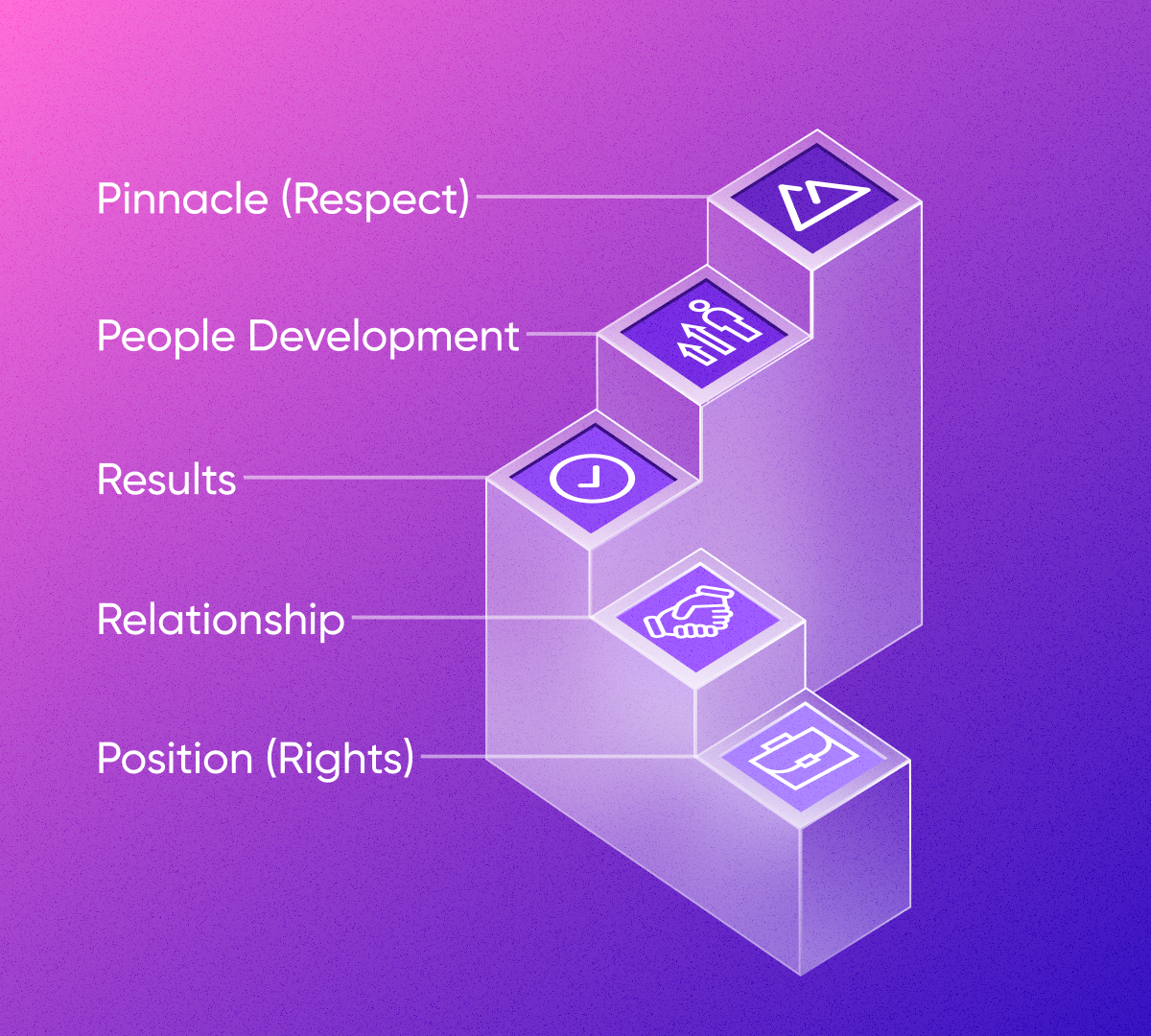Successful leadership is a combination of various traits, but effective communication is considered one of the most important skills a leader must possess. It is essential for leaders to articulate their vision, goals, and expectations in a way that inspires, motivates, and guides their team towards success. Good communication can build trust, foster teamwork, and increase productivity, while poor communication can lead to confusion, misinterpretation, and decreased morale. In this article, we will explore some of the most effective communication strategies for leaders.
Listen actively
Leaders must listen to what their team has to say, understand their concerns and ideas, and respond appropriately. Active listening requires paying attention to what is being said, not just hearing the words, and showing genuine interest in the speaker’s perspective. As John Maxwell wrote in his book "The 5 Levels Of Leadership," the second step is interaction with your team. Once a leader establishes the foundational level of Position (the first level in Maxwell's model), the next step involves fostering meaningful connections with team members. Interaction becomes a key element in building trust, understanding individual strengths and weaknesses, and creating a positive and collaborative work environment. Leaders who excel at this level understand the importance of active listening, empathy, and effective communication.

One practical way to implement effective interaction is by asking thoughtful and open-ended questions. These questions go beyond the surface and encourage team members to share their thoughts, ideas, and concerns. Here are some examples:
- What are your long-term career goals, and how can the team support your growth?
- Can you share a recent challenge you faced, and how did you overcome it?
- In your opinion, what are the key strengths and weaknesses of our current team dynamic?
- How can I, as a leader, better support you in your role?
- What ideas do you have for improving our team's efficiency and collaboration?
- What is something you feel passionate about that you would like to incorporate into your work here?
- How do you prefer to receive feedback, and how can I ensure it is constructive for your professional development?
Be transparent
Leaders should communicate openly and honestly with their team, avoiding secrecy and being transparent about decisions and actions. This creates a culture of trust and builds confidence in the leader. One of the values of our company Movadex is transparency not only with clients but also with employees. Again, we return to the 2nd step - establishing interaction. When leaders are transparent, they signal to their team that they are approachable and willing to engage in meaningful conversations. In my experience as a CEO, I embrace participative leadership, valuing the input of colleagues. While everyone may have their preferred management styles, I recommend steering away from a solely delegative approach. It's crucial to actively lead and nurture positive relationships with your team.
Be clear and concise
Leaders should communicate in a clear, concise, and simple manner, avoiding technical jargon and overly complex language. This helps to ensure that their message is understood by everyone, regardless of their level of technical knowledge.
Don’t: "In light of our organizational objectives and the current industry landscape, it is imperative that each team member contributes optimally to meet our collective goals. Please be mindful of deadlines and quality standards."
Do: "Team, let's hit our goals! Remember, deadlines and quality matter. Your best work makes the team shine."
Use visual aids
Visual aids, such as charts, diagrams, and presentations, can help to illustrate complex ideas and make them easier to understand.
Don’t: Describing the strengths, weaknesses, opportunities, and threats of a project verbally might lead to information overload.
Do: Utilize a SWOT analysis matrix to visually present each element. This allows for a clear and concise overview of the project's internal and external factors.
Provide feedback
Leaders should provide regular feedback to their team, both positive and negative, in order to help them improve and grow. Feedback should be given in a constructive and supportive manner, focusing on the specific behaviors or actions that need to be improved.
How to provide feedback as an executive?
1. Gather Data
Instead of stating, "Your project completion rate is low," provide specific data: "Over the past quarter, I see a 20% decrease in project completion rates compared to the previous quarter.”
2. Choose the Right Time and Place
Schedule feedback discussions in a private and comfortable environment, minimizing interruptions and ensuring the individual feels at ease. But be sure to be mindful of the individual's emotional state and workload. Avoid delivering feedback during stressful periods, ensuring they are receptive to constructive input.
You can say, "Can we schedule some time this week to discuss your recent project in a private setting? I want to ensure we have a focused conversation without interruptions."
3. Gather Feedback from a Wide Range of Perspectives
Seek input from peers, subordinates, and even external stakeholders. This comprehensive approach provides a well-rounded perspective on an individual's performance. You can conduct anonymous surveys to encourage honest feedback, especially when addressing sensitive topics.
4. Be Transparent
For example, you can say, “I want to have an open conversation about your recent client interactions to ensure we are aligned on expectations and identify areas for improvement.”
5. Use “I” Statements, Not “We” Statements
Frame feedback as personal observations to avoid sounding accusatory. This fosters a collaborative atmosphere. Instead of saying, "We have noticed a decline in team morale," express it as, "I have observed a decrease in team morale during recent projects. Let's discuss how we can address this together."
6. Offer Guidance
Begin by acknowledging the individual's strengths. This sets a positive tone and reinforces their value to the team. For example, you can say, "Your strategic thinking has greatly contributed to our recent successes. Now, let's discuss how we can further leverage this strength in upcoming projects." Then offer to work collaboratively to set specific and measurable goals for improvement, ensuring alignment with organizational objectives.
Encourage Collaboration
Leaders should foster a collaborative environment, where team members can work together to achieve common goals. This requires regular communication and active listening, as well as a willingness to consider different perspectives and find creative solutions to problems.
For example, you can use Miro or FigJam as online collaboration tools for brainstorming. Also, don’t forget to organize team-building activities to strengthen relationships and build a sense of camaraderie. This could include workshops, retreats, or informal gatherings to foster connections beyond the workplace.
Be Approachable
Leaders should be approachable and accessible to their team, encouraging open and honest communication, and making themselves available to answer questions and address concerns. Create an atmosphere where team members feel comfortable approaching leadership. An open-door policy signals accessibility and encourages individuals to seek guidance or share ideas.
Don’t forget to pay attention to non-verbal cues. Maintain open body language, make eye contact, and smile. Approachability is not just about words but also about creating a welcoming demeanor.
You can say to that person, "I noticed you had something on your mind during the meeting. If you're comfortable, I'd love to hear your thoughts. My goal is to create an environment where everyone feels heard."
Use technology
Technology can help leaders communicate effectively by providing new and innovative ways to connect with their team. For example, video conferencing, instant messaging, and project management tools can all be used to keep team members informed and engaged. Also, creating internal social platforms or intranet forums where team members can share updates, celebrate achievements, and engage in discussions is a perfect HR tactic. This enhances team cohesion and creates a sense of community.
In conclusion, effective communication is critical for successful leadership. By being transparent, clear, and approachable, leaders can build trust and foster teamwork, while promoting a productive and collaborative work environment. By using a combination of the strategies outlined above, leaders can ensure that their message is received and understood, and that their team is motivated and inspired to achieve their goals.




